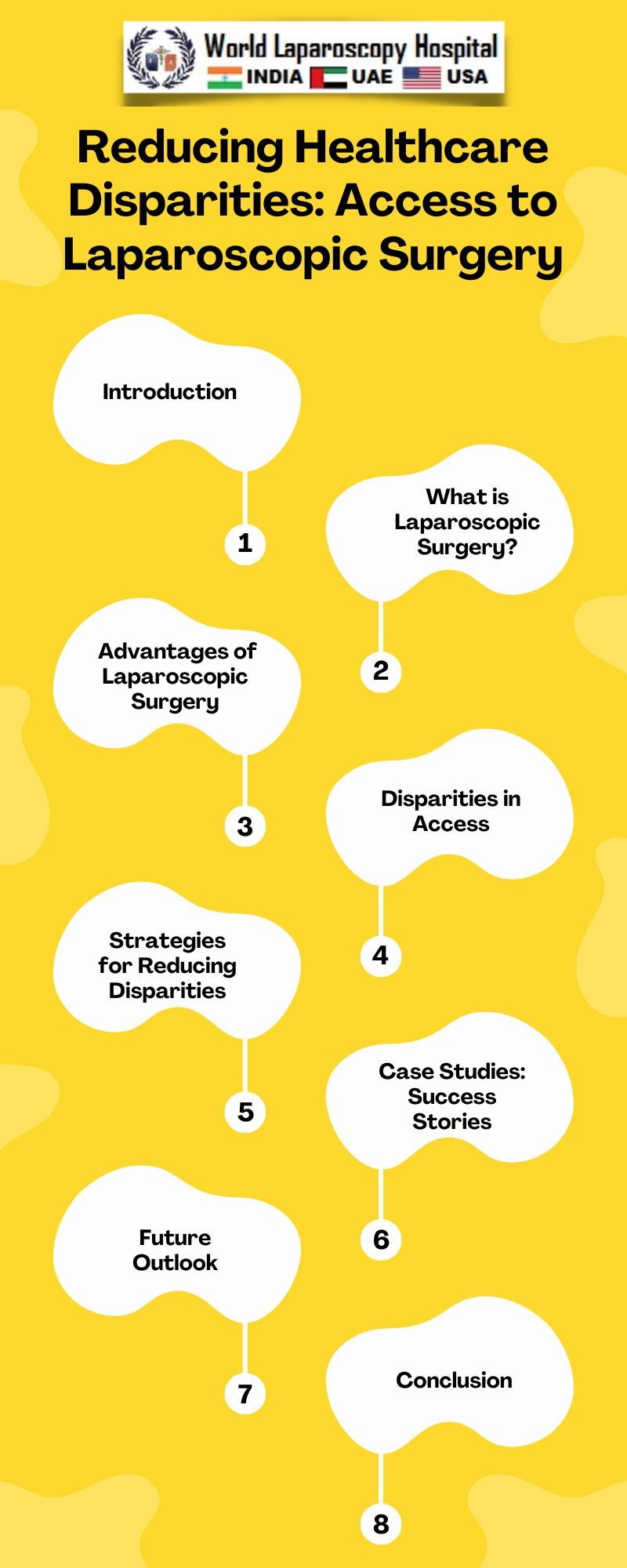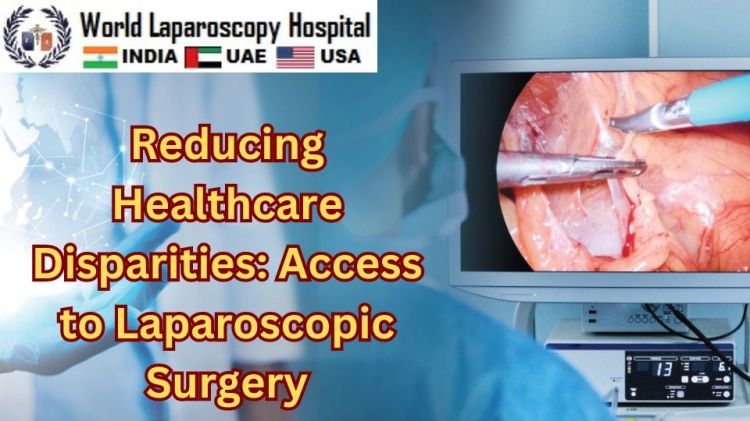Reducing Healthcare Disparities: Access to Laparoscopic Surgery
Introduction
In the realm of modern medicine, technological advancements have revolutionized treatment modalities, providing patients with more effective and less invasive options. Laparoscopic surgery, also known as minimally invasive surgery, stands as a testament to such progress, offering benefits like reduced pain, shorter recovery times, and smaller incisions. However, a pressing concern within the healthcare landscape is the existence of disparities in accessing this cutting-edge surgical technique.

Healthcare disparities, often rooted in socioeconomic, racial, and geographical factors, continue to persist globally. Addressing these disparities requires a comprehensive approach, and one critical aspect is ensuring equal access to advanced medical interventions such as laparoscopic surgery. This article delves into the challenges surrounding access to laparoscopic surgery and explores strategies to bridge the divide, promoting inclusivity in healthcare.
Understanding Laparoscopic Surgery
Laparoscopic surgery involves the use of small incisions and specialized instruments, including a camera, to perform surgical procedures. This technique contrasts with traditional open surgery, where larger incisions are made. The advantages of laparoscopic surgery are manifold – reduced pain, shorter hospital stays, quicker recovery times, and minimal scarring. These benefits make it a preferred choice for various procedures, including gallbladder removal, appendectomy, and certain types of cancer surgeries.
Challenges in Access to Laparoscopic Surgery
Economic Barriers:
One of the primary challenges contributing to healthcare disparities in laparoscopic surgery is economic inequality. Patients with limited financial resources may face barriers in accessing this advanced surgical technique, as it often involves higher costs compared to traditional open surgery. The expenses associated with specialized equipment, skilled surgeons, and postoperative care can be prohibitive for individuals with lower socioeconomic status.
Geographical Disparities:
Access to laparoscopic surgery is not uniform across geographical regions. Rural areas, in particular, may lack the infrastructure and skilled healthcare professionals required for performing laparoscopic procedures. Limited access to specialized medical facilities and a shortage of trained surgeons in these areas exacerbate healthcare disparities, leaving residents with fewer options for minimally invasive surgery.
Educational Disparities:
Another factor contributing to unequal access is the level of health literacy and awareness among different populations. Patients who are not well-informed about the benefits of laparoscopic surgery or are unaware of its availability may not seek out these options. Addressing educational disparities is crucial in empowering individuals to make informed decisions about their healthcare and explore advanced treatment alternatives.
Racial and Ethnic Disparities:
Studies have indicated that racial and ethnic minorities may face disparities in access to laparoscopic surgery. Factors such as implicit bias, cultural competence, and unequal distribution of healthcare resources contribute to these disparities. Bridging the gap requires a multifaceted approach, including cultural sensitivity training for healthcare providers and initiatives to promote diversity in the medical field.
Strategies for Bridging the Gap
Financial Assistance Programs:
Implementing financial assistance programs can help mitigate economic barriers to laparoscopic surgery. These programs can be designed to provide subsidies or grants for patients with limited financial means, ensuring that the cost of the procedure is not a prohibitive factor in accessing advanced surgical options.
Telemedicine and Telehealth Services:
Leveraging telemedicine and telehealth services can help overcome geographical disparities. Virtual consultations and remote monitoring enable patients in rural or underserved areas to connect with specialized healthcare providers without the need for extensive travel. This approach expands access to laparoscopic surgery beyond traditional healthcare infrastructure.
Community Outreach and Education:
Initiatives aimed at raising awareness about laparoscopic surgery and its benefits are essential in addressing educational disparities. Community outreach programs, workshops, and educational campaigns can empower individuals to make informed decisions about their healthcare. Collaborations with community leaders and organizations can enhance the reach and impact of such initiatives.
Diversity in Healthcare Workforce:
Increasing diversity in the healthcare workforce is crucial for addressing racial and ethnic disparities. Efforts to recruit and retain underrepresented minorities in surgical specialties, including laparoscopic surgery, can enhance cultural competence within the medical field. Additionally, training programs should emphasize the importance of unbiased and patient-centered care.
Research and Data Collection:
Ongoing research and data collection are essential for understanding the specific factors contributing to disparities in laparoscopic surgery access. Comprehensive data can inform targeted interventions and policy changes, facilitating a more evidence-based approach to reducing healthcare inequalities.
Conclusion
Ensuring equitable access to laparoscopic surgery is a vital step toward creating a more inclusive healthcare system. By addressing economic, geographical, educational, and racial disparities, healthcare providers and policymakers can work together to bridge the gap. Through financial assistance programs, telemedicine services, community outreach, workforce diversity initiatives, and robust research efforts, we can strive to make advanced medical interventions accessible to all, irrespective of their background or circumstances. As we continue to advance in medical technology, it is imperative that these advancements benefit everyone, leaving no one behind in the pursuit of optimal health outcomes.


